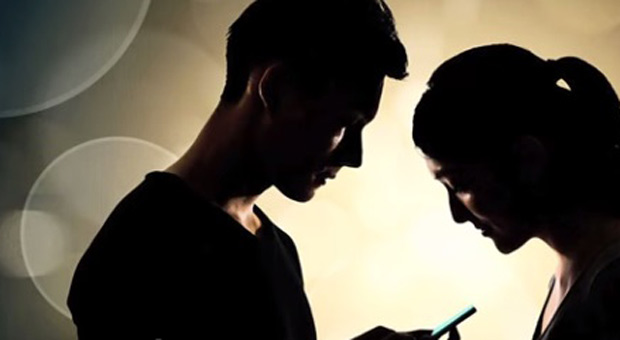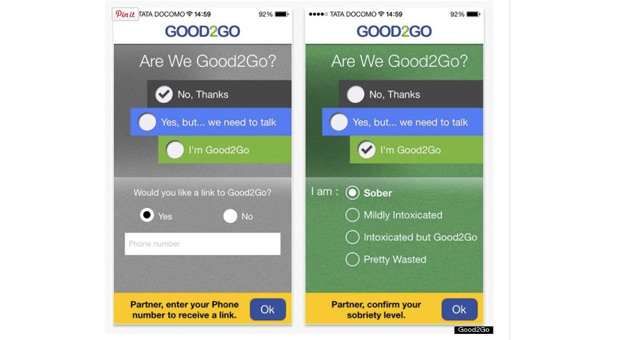Good2Go: 'sexual consent' app stirs controversy
It's designed to prevent sexual assault and 'regretted activities' – but activists say Good2Go is misguided

A free daily email with the biggest news stories of the day – and the best features from TheWeek.com
You are now subscribed
Your newsletter sign-up was successful
A new smartphone application called Good2Go, which aims at preventing sexual assault by recording explicit consent from both partners, has attracted criticism from campaigners who question its effectiveness.
Good2Go was created by Lee Ann Allman and several other parents of university-aged children who were concerned about the rising number of sexual assaults taking place on college campuses across the US.
Launched last week, it aims to prevent or reduce "sexual assault, miscommunication, and regretted activities" by "facilitating communication between adults" before sexual activity takes place.
The Week
Escape your echo chamber. Get the facts behind the news, plus analysis from multiple perspectives.

Sign up for The Week's Free Newsletters
From our morning news briefing to a weekly Good News Newsletter, get the best of The Week delivered directly to your inbox.
From our morning news briefing to a weekly Good News Newsletter, get the best of The Week delivered directly to your inbox.
The launch of the app coincides with a ruling in California that requires "active consent" to sex, clarifying the principle that the absence of the word 'no' does not mean that sex is consensual.
How does Good2Go work?
The first screen presents users with the question "Are you Good2Go?", to which there are three possible answers: "no thanks", "yes, but we need to talk" or "I'm Good2Go".

If a person chooses not to engage in sexual activity, a reminder screen pops up to remind the other person that "no means no".
A free daily email with the biggest news stories of the day – and the best features from TheWeek.com
If a person chooses to engage, but wants to discuss the issue further, they choose the second option, returning to the app once they have finished.
If the partner selects "Good2Go," they are then asked to assess their own level of sobriety, choosing from four options; "sober, mildly intoxicated, intoxicated but Good2Go or pretty wasted". If the last option is selected, the process is over as "a partner cannot consent if they are pretty wasted". If the partner confirms that they are 'Good2Go' and has an acceptable sobriety level, they then need to confirm their identity.
What has the response been?
Not great. "Firstly, asking someone to sign a waiver in case they later decide to falsely accuse you of assault is officially the worst foreplay ever," writes The Guardian's Erica Buist.
Many commentators pointed out this is not an app that will help potential victims of rape, but rather one that offers a defence against accusations of rape.
"It gets more sinister when you consider who would download it – men who are nervous of being accused of rape," writes Buist. "Is this something non-rapists lose sleep over? Or do people think women’s favourite pastime is fabricating claims of life-ruining assaults?"
The Washington Post's Caitlin Dewey highlights an altogether different concern – privacy. Users are expected to hand over information to a company about "(a) who you’re sleeping with, (b) when you did it, and (c) how drunk or sober you were at the time," she writes. "Didn't realize you consented to that, did you?"
Others suggest that the app could be easily manipulated by rapists in order to "prove" that consent was given.
It seems to me like Good2Go isn’t built to protect consent, it’s built to manufacture evidence of consent for rapists.— Dickzhuotan (@DavidUzumeri) September 30, 2014
The app "may help the falsely accused, but it's unlikely to aid a real victim," writes Amanda Hess for Slate. She says that while the app might remind users that consent can be revoked at any time, "there are still judges and juries that will take evidence that a person said 'yes' to sex at one point, and conclude that they were asking for whatever happened later that night."